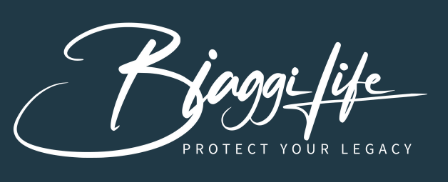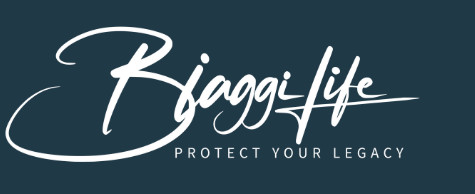Whole Life vs Indexed Universal Life

Whole Life vs Indexed Universal Life
The purpose of this blog is to compare what I have found to be one of the best Whole Life policies out there from an A+ company and one of the best Indexed Universal Life policies from an A+ company. These are what I found to be some of the top carriers after looking at about 40 or 50 companies.
The Whole Life policy had a minimum premium of
$7,810 a year, whereas the Indexed Universal Life was only
$2,025 annually.
To ensure a fair comparison, we did what we call in the industry “apples to apples” between the two. We adjusted the Indexed Universal Life premium to meet the Whole Life premium, as we couldn’t bring the Whole Life premium down as it was the minimum.
Again, the Indexed Universal Life minimum was ¼ or about 25%. So what I did is just ran the indexed universal life policy at the very same premium, $7,870, and then I looked at them.
First Year Cash Value
The first thing I looked at was the first-year cash value in the whole life policy. In the
Whole Life policy, it had
zero, Typical of such policies as all they pay you is basically the guaranteed projected value. But in the first 10 years of this policy, the projected value was not much more than the guarantee.
On the other hand, the
Indexed Universal Life
policy had a first cash value of $6,508 which is about 82% of what he paid in.
30th Year Cash Value
The
Indexed Universal Life
policy, if you paid the same premium, the $7,870 a year, the 30th year cash value was $440,525.
The
Whole Life
cash value is $319,165. That is 30 percent less than the indexed Universal Life paying the same premium, and that’s a lot of money. That’s 319,000 versus 440,000 over a 30-year period of time. That’s not that long a time to have that significant difference in cash value.
Death Benefit
The death benefit on the
Whole Life
policy in 30 years was $594,420.
While in Indexed Universal Life policy… are you ready for this?
It was $940,525.
That is a 40% decrease in death benefit with the whole life policy over the indexed universal life.
This disparity not only affects the policy's value but also its ability to serve as a reliable financial safety net for beneficiaries.
I’ve heard people talk about the guarantees of a Whole Life policy and that the IUL, the Indexed Universal Life doesn’t have those guaranteed. But they do have guarantees and it has a no-lapse guaranteed premium which on this policy guarantees that policy all the way to age 90.
So if you just pay the premium, no matter what happens with the cash value, with the investment projections on the policy, or with the company down the road because we’re talking to age 90 on this guy, he’s 45 all the way to 90, the premium that guarantees that policy is only $3,375 a year. That is 60 percent less than the Whole Life guarantee premium, and that’s huge.
The other big problem that I saw with the Whole Life policy and again I’m not promoting either one, I’m just comparing policies here but in the 30th year and you did die in that 30th year and you had $319,165 of cash value, the company would keep that. They will not pay that out in addition to the death benefit as the indexed universal life policy does. That was the big problem with Whole Life policies before Universal Life.
Wrapping-Up
In wrapping up our exploration of Whole Life versus Indexed Universal Life insurance, it's clear that IUL policies offer a compelling combination of flexibility, potential for growth, and protection that can be highly attractive for many policyholders. This flexibility allows policyholders to adapt their coverage to fit their changing needs and financial situations over time, a feature not as readily available with Whole Life policies.
The key takeaway from our discussion is the importance of understanding your individual insurance needs and financial goals. For those seeking a policy that can adjust to their life's changes, provide the potential for cash value growth, and offer a level of control over premiums and benefits, Indexed Universal Life insurance presents a robust option. It's about finding the right balance between protection, flexibility, and investment potential to meet your unique circumstances.
Ready to navigate the complex world of life insurance with an expert by your side? At
Biaggi Life, we're dedicated to cutting through the confusion, offering you clear, straightforward advice that makes sense. Rooted in our core philosophy of transparency, value, and a hassle-free experience, we're here to guide you through every step of choosing the right life insurance policy for you and your loved ones.
Located in California, Biaggi Life prides itself on being more than just a provider; we're your partner in securing your future. Whether you're considering the flexible advantages of Indexed Universal Life insurance or weighing other options, we believe in giving you the full picture, not just the sales pitch.
Frequently Asked Questions
What is Whole Life Insurance?
Whole Life Insurance is a type of permanent life insurance that offers a fixed death benefit and a cash value component that grows at a guaranteed rate. Premiums remain constant throughout the policy's life, providing both financial protection and a savings element that accumulates tax-deferred over time.
What is Indexed Universal Life (IUL) Insurance?
Indexed Universal Life Insurance is a flexible permanent life insurance policy where the cash value growth is linked to a stock market index, like the S&P 500. It offers the potential for higher returns compared to Whole Life, with a floor that protects against market losses. Premiums and death benefits are adjustable, providing tailored financial planning options.
What are the tax implications of IUL vs. Whole Life Insurance?
Both IUL and Whole Life Insurance policies offer tax-deferred growth of the cash value and tax-free death benefits to beneficiaries. However, IUL policies may provide additional tax advantages through loans and withdrawals, which can be structured to minimize tax impact, offering a strategic way to access funds.
How do premium flexibility and adjustments work in IUL Policies?
IUL policies allow policyholders to adjust their premium payments within certain limits, offering the flexibility to increase or decrease payments based on financial circumstances. This can be particularly beneficial in managing financial flux, allowing for higher payments when affordable and lower ones when finances are tight.
What's the impact of market volatility on IUL policies?
IUL policies are designed to mitigate the risk of market volatility with a guaranteed minimum interest rate, ensuring the cash value doesn’t decrease even if the linked index performs poorly. This provides a balance of growth potential through market participation with the safety of a guaranteed floor.
Can the death benefit of IUL and Whole Life policies change over time?
For Whole Life Insurance, the death benefit is generally fixed and doesn’t change. In contrast, IUL policies offer the flexibility to adjust the death benefit, catering to changing needs over time, such as after major life events like marriage, the birth of a child, or retirement.
What role does the cash surrender value play in policy cancellation?
The cash surrender value is what the policyholder receives if they decide to terminate the policy before death. It's important in both Whole Life and IUL policies as it represents the savings component of the policy. For Whole Life, this value grows at a guaranteed rate, while in IUL, it can fluctuate with market performance but has a guaranteed minimum.




